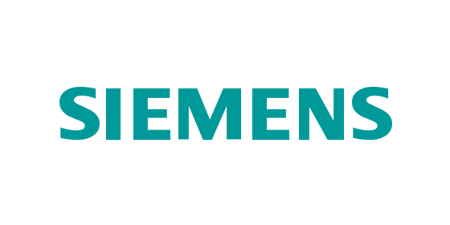
Client:Siemens GBS
Industry:Manufacturing
Region:Asia Pacific & Japan
Siemens GBS China Boosts Operational Efficiency by Deploying RPA

10,000
data items processed per robot per year
Client Overview
Siemens GBS (Global Business Services) China provides innovative digital solutions and customer-oriented business services for Siemens’ manufacturing subsidiaries across different platforms, spanning the areas of finance, human resources, and procurement.
Extensive deployment of RPA has enabled Siemens GBS China to save thousands of hours every year, standardizing the processes of data verification and management.
In response to the fast-developing digital economy and to better serve its customers, Siemens GBS (Global Business Services) China decided to explore innovative technologies to reduce operational costs and improve overall efficiency for its business operations. UiPath robotic process automation (RPA) was chosen to support backend operations across multiple business units.
Highly repetitive workload drives Siemens to explore automation options
Siemens GBS China is managing an increasing number of business orders each day. This has resulted in a greater volume of routine work such as the processing of business orders, verifying bank statements, and creating expenditure reports. The tasks are routine in nature and are often tedious and repetitive. To address these, Siemens explored innovative automation technology to save on labor force, better employ assets, and reduce costs.
One benefit of RPA is the ability to free employees’ time for more valuable tasks. UiPath RPA is a cost-effective, easy-to-deploy, and easy-to-use platform that matches Siemens’ immediate needs. The automation rollout started in early 2020 and Siemens has seen significant results.
Boosting efficiency in multiple deployment areas
Siemens GBS China started implementation of automation pilot projects in its finance, human resources, and supply chain functions.
Manage material data
RPA optimizes the management of material data. Software robots process data from shared folders, upload data to a resource management system, and generate business reports automatically. As a result, the material data management process has become more standardized and efficient. A single robot now runs four times a day, processing over 10,000 data items, while saving employees hundreds of work hours per year.
Order management system
Siemens GBS China’s order management system incorporates the following tasks:
Confirm order details, read order data (including pricing and quantity)
Upload data
Verify data
Send confirmation messages to clients
Develop spreadsheets with order details, and upload the spreadsheets to the core system
RPA plays a crucial role in downloading orders, verifying data, communicating order information to customers via telephone and email, and creating data graphs.
Manage bank transaction slips
Downloading bank transaction records is a time-consuming task which staff traditionally had to handle manually. RPA has automated this process by identifying and downloading the bank slips and automatically generating accurate responses.
Create purchase orders automatically
In the procurement department, software robots pull data from the procurement bidding platform, automatically log the information into the corporate system to generate purchase orders, create order numbers, and update relevant parties on the progress (for approval, delivery, and invoicing). This reduces the duplication of processes, resulting in a more accurate and efficient purchase workflow.
Siemens GBS China has also been trying to maximize RPA efficiency. For example, unattended robots could handle tasks at night, and staff could then take over those tasks when they arrive at work in the morning. This arrangement allows robot systems and staff to work closely to improve overall operational efficiency. All these deployments accelerate the pace of automation at Siemens GBS China.
RPA unlocks more business potential
Siemens GBS China has deployed more than 10 robots in the front and back offices and various work areas, performing tasks such as collection of payments and verification. At the same time, RPA has been applied to help maintain procurement and supplier systems.
Highly repetitive tasks, with lower perceived value added, have been gradually integrated and assigned to RPA robots. The robots work 24 hours a day, seven days per week, and have substantially increased operational efficiency. Accurate, compliant, and standardized systems have further optimized business processes at Siemens GBS China.
Extensive deployment of RPA has enabled Siemens GBS China to save thousands of hours every year, standardizing the processes of data verification and management.
This has led to an improvement in the quality of services while reducing manual operations.
RPA a driving force for digital transformation
Siemens GBS China has been growing rapidly with an increasing number of customers. Moving forward, Siemens will explore further RPA deployments in other business process and reporting areas.
In the future, RPA is expected to become a driving force for industrial enterprises in China by integrating more innovative technology and accelerating their digital transformation journey.
Our goal is not to replace staff with RPA. We are facilitating staff to implement tasks in a more efficient way. UiPath saves work hours and allows staff to focus on more valuable work. This is a win-win collaboration.
Technology Leader of Process Automation Service, Siemens GBS China
Related case studies
Ready for your own case study?
Speak to our team of knowledgeable experts and learn how you can benefit from agentic automation.





